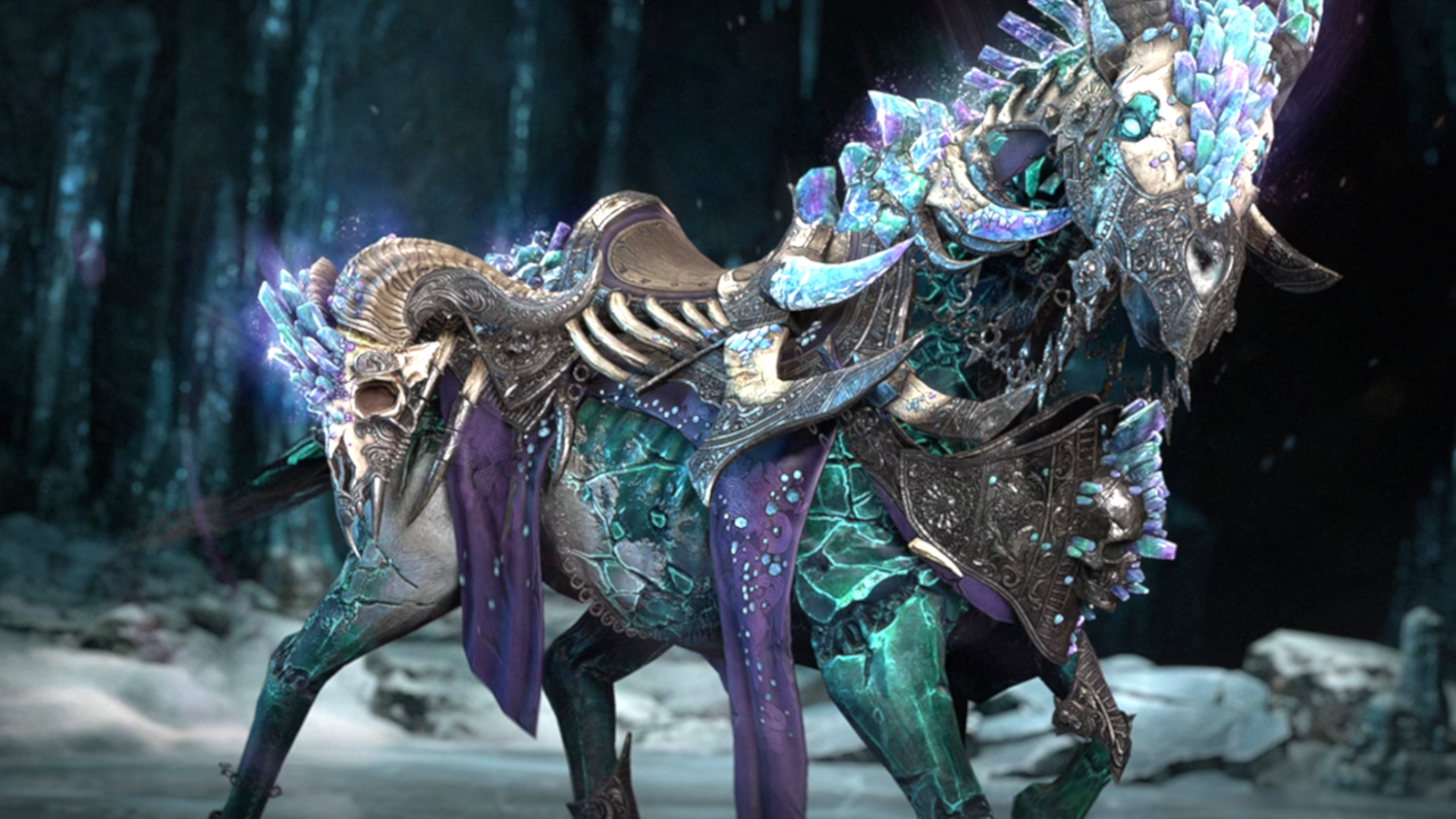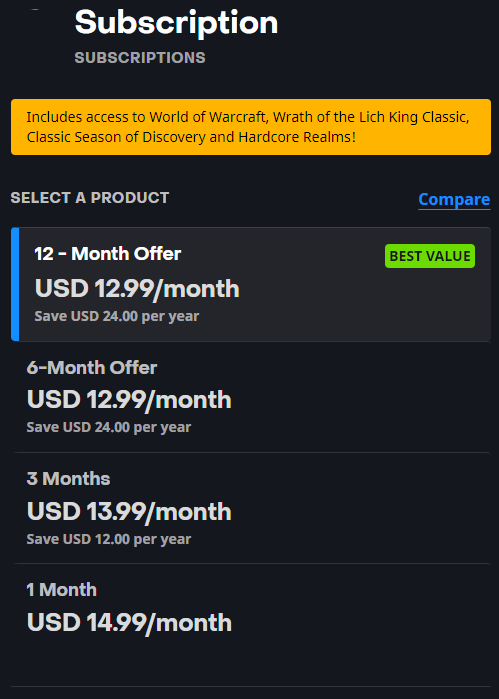If you're wondering why Diablo 4 has a horse for sale with $65 of premium currency stuck to it, let me introduce you to 'price anchoring'
Compare, contrast, cash-in.

If you've looked at the Diablo 4 store and wondered why you can't buy something without it being part of a bundle, I regret to inform you that it's super on purpose. I talked about this earlier in the week, regarding a set of class-locked portal recolours going for $20 (with a mandatory $10 purchase of 1,000 platinum). Turns out, this happens a lot.
Exhibit A: the Vitreous Scourge bundle—which is a horse that costs $65, kinda. The mount is one of several bundles released for Diablo 4 over the course of its lifespan that let players cash-in for exclusive cosmetics, plus a premium currency reward.
In this case, the Vitreous Scourge is technically—with a hefty asterisk next to that word—a good deal. 7,000 platinum is the equivalent of around 65-68 dollars, as per the platinum prices on the Battle.net store. You're getting a slight price cut on premium currency and free horse armour—horse. I meant horse.
So what's the problem? Well—it does suck that you can't just buy the thing on its own. Ideally you'd also be able to unlock it in-game, too—but I'll grumpily admit you've got to grease the wheels somehow in our modern age of microtransaction hell. The real issue at hand is that there are buying options being withheld in the name of marketing psychology.
The "anchoring effect" refers to our tendency to see something as more favourable or likely as long as we get to compare it to an "anchor" somewhere. This anchor can be completely irrelevant—for example, in one study, researchers found that the presence of a wheel of fortune had an influence on participants' guesses as to "the percentage of African countries in the United Nations." If the wheel landed on a lower number, the average guess was lower, and so on.
In marketing, this principle is applied in the form of "price anchoring." Do a quick Google search, and you'll find reams of guides, blogs, and explainers designed to help you "play on consumer's biases". In essence, the prospect of shelling out $65 dollars on cosmetics seems like a more reasonable idea because it's compared to the poorer deal of buying 5,700, 1,000, and 500 batches of platinum separately.
Is Blizzard doing something sinister here? Well, that depends on how exhausted you are by capitalism, but if we use our current society as an anchor—no, not really. It's not even new from the company itself. Take a look at the World of Warcraft subscription page.
Keep up to date with the most important stories and the best deals, as picked by the PC Gamer team.

Behold: a 12-month offer positioned above a one month offer with direct price comparisons. Classic price anchoring.
What's different with the Vitreous Scourge bundle is how the option's taken away from you. If you want to buy one month of WoW for slightly more money, you can—if you want to just buy the mount and risk wanting 7,000 platinum later, then you can go get stuffed.
Ultimately, if you're hankering to spend some dough on a digital horse then that's your prerogative, even if you want to drop $65 on one. But make no mistake—the Diablo 4 store is like this because it encourages players to spend money on platinum they otherwise wouldn't buy.

Harvey's history with games started when he first begged his parents for a World of Warcraft subscription aged 12, though he's since been cursed with Final Fantasy 14-brain and a huge crush on G'raha Tia. He made his start as a freelancer, writing for websites like Techradar, The Escapist, Dicebreaker, The Gamer, Into the Spine—and of course, PC Gamer. He'll sink his teeth into anything that looks interesting, though he has a soft spot for RPGs, soulslikes, roguelikes, deckbuilders, MMOs, and weird indie titles. He also plays a shelf load of TTRPGs in his offline time. Don't ask him what his favourite system is, he has too many.

